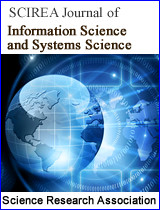Natural Language Information Processing Based on the Valid Traditional Syllogisms EIO-4
DOI: 10.54647/isss120350 30 Downloads 13378 Views
Author(s)
Abstract
Firstly this paper proves the validity of traditional syllogism EIO-4, and then makes full use of relevant definitions, facts, and some inference rules. On the basis of 34 reasoning steps, the other 23 syllogisms can be inferred from the syllogism EIO-4. This is because Aristotelian quantifiers (that is, all, no, some, and not all) can be mutually defined. Thus, a minimalist formal axiomatic system can easily be constructed for traditional syllogistic logic. This formal research method is not only beneficial for the study of other types of syllogisms, but also for better knowledge mining and thus for better understanding of natural language.
Keywords
reducible relation; traditional syllogism; Aristotelian quantifier; symmetry
Cite this paper
Feifei Yang, Xiaojun Zhang,
Natural Language Information Processing Based on the Valid Traditional Syllogisms EIO-4
, SCIREA Journal of Information Science and Systems Science.
Volume 8, Issue 3, June 2024 | PP. 95-102.
10.54647/isss120350
References
| [ 1 ] | Chater, N., & Oaksford, M. (1998). The probability heuristics model of syllogistic reasoning. Cognitive psychology, 38(2), 191-258. |
| [ 2 ] | Cheng, Z. (2022). The Remaining 23 Valid Aristotelian Syllogisms can be Deduced only from the Syllogism IAI-3, SCIREA Journal of Computer, 7(5), 85-95. |
| [ 3 ] | Hamilton, A. G. (1988). Logic for mathematicians. Cambridge University Press. |
| [ 4 ] | Hellman, G. (2001). Three varieties of mathematical structuralism. Philosophia Mathematica, 9(2), 184-211. |
| [ 5 ] | Hellman, G. (2001). Three varieties of mathematical structuralism. Philosophia Mathematica, 9(2), 184-211. |
| [ 6 ] | Kunen, K. (1980). Set theory: an introduction to independence proofs. The Netherlands: Elsevier Science Publishers B.V., 186-187. |
| [ 7 ] | Long, W. (2023). Formal System of Categorical Syllogistic Logic Based on the Syllogism AEE-4, Open Journal of Philosophy, 13(1), 97-103. |
| [ 8 ] | Łukasiewicz, J. (1957). Aristotle's syllogistic from the standpoint of modern formal logic. Oxford: Clarendon Press. |
| [ 9 ] | Moss, L. S. (2008). Completeness Theorems for Syllogistic Fragments. In F. Hamm, & S. Kepser (Eds.), Logics for linguistic structures. Mouton de Gruyter. |
| [ 10 ] | Peters, S., & Westerståhl, D. (2006). Quantifiers in language and logic. Claredon Press. |
| [ 11 ] | Westerståhl, D. (1989). Aristotelian syllogisms and generalized quantifiers. Studia Logica, 48, 577-585. |
| [ 12 ] | Xiaojun, Z. (2018). Axiomatization of Aristotelian Syllogistic Logic Based on Generalized Quantifier Theory. Applied and Computational Mathematics, 7(3), 167-172. |
| [ 13 ] | Xiaojun, Z., & Sheng L. (2016). Research on the formalization and axiomatization of traditional syllogisms, Journal of Hubei University (Philosophy and social sciences), No. 6, 32-37. (In Chinese). |
| [ 14 ] | Yijiang, H. (2016). Formal research on discourse reasoning in natural language. Journal of Hunan University of Science and Technology (Social Sciences Edition), (1), 33-37. (In Chinese). |

